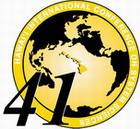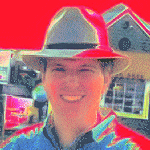Hawaii International Conference on Soft ware Systems 2008: Call for Papers - due 15 June 2007

Get your papers in by 15 June 2007 - don't miss Hawaii in January 2008!
Agile Software Development: Lean, Distributed, and Scalable
(Jeff Sutherland and Hubert Smits)
Agile software development processes have been influenced by best practices in Japanese industry, particularly by lean product development principles implemented at companies like Honda and Toyota, and knowledge management strategies developed by Takeuchi and Nonaka, now at the Hitotsubashi Business School in Japan, and Peter Senge at MIT. This Minitrack will focus on advancing the state of the art or presenting innovative ideas related to agile methods, individual practices and tools. Accepted papers will potentially enrich the body of knowledge and influence the framework of thought in the field by investigating Agile methods in a rigorous fashion.
We are open to research papers on multiple aspects of agile methods, particularly those that bring best practices in knowledge management and lean development to scalable, distributed, and outsourced Scrum, eXtreme Programming (XP), and other agile practices. Topics include:
Research on existing or new methodologies and approaches: informal modeling techniques and practices, adapting/trimming existing methods, and new product/project planning techniques
Research on existing or new techniques or practices: pairing, war-rooms, test-first design, paper-based prototyping, early acceptance test driven development, exploratory testing, refactoring, or others.
Research on special topics or tools: configuration and resource management, testing, project steering, user involvement, design for agility, virtual teams or others.
Research on integrating ideas from other fields, e.g. interaction design, requirements engineering, cognitive science, organizational psychology, usability testing, software security, into agile processes.
Research studies of development teams using ethnographic or social research techniques.
Research on agile software engineering economics.
Quantitative and qualitative studies of agile methods, practices, and tools.
Research on agile compliance and cost benefits within CMMI, ISO 9000, and FDA certified development projects.
Papers are particularly relevant when agile process implementations are shown to produce quantitative and qualitative benefits on distributed, outsourced, large, or standards compliant software development projects which have been previously been viewed (erroneously) as unsuited for agile development.
Jeff Sutherland (primary contact)
Chief Technology Officer and Worldwide Scrum Consulting Practice Manager
PatientKeeper Inc.
275 Washington St., 2nd Floor
Newton MA 02458
Tel: (617) 987-0394
Email: jeff.sutherland@computer.org
Hubert Smits
Services Dept
Rally Software Development
3333 Walnut Street
Boulder, CO 80301
Email: Hubert.Smits@rallydev.com




